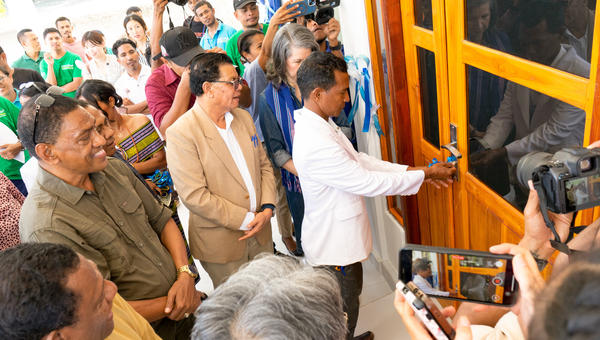Youth Employment and Entrepreneurship Skills (YEES) Project
Summary
The Youth Employment and Entrepreneurship Skills (YEES) Project is a collaborative initiative between the Government of Timor-Leste - the Ministry of Tourism, Trade, and Industry, and UNDP Timor-Leste to create job opportunities and entrepreneurship programs for youth to become entrepreneurs. The project is mainly funded by Korea International Cooperation Agency (KOICA) for six years starting in 2022.
Background
Timor-Leste is an LDC with lower-middle income status that relies on its natural oil and gas revenue-based sovereign wealth Petroleum Fund for its annual state budget. Besides this fund, there are no other substantive sources of income. Economic diversification focusing on job creation and poverty reduction is a great need. It has 30% of the population living below the national poverty line and 46% are multidimensionally poor. 70% of Timor-Leste’s population lives in rural areas, most of whom (64.2%) depend on subsistence agriculture. This young nation has 74% of its population under 35 (Census2015), and according to the 2018 Labour Market Outlook, 20.3% of the youth population (aged 15-24) were not in employment, education, or training (NEET). 78% of the people between the age of 15 to 64 were not employed, of which around 36% were youth aged 15 to 24 years.
Major Achievements
- 171 youth obtained internships and 63 people secured full-time employment after the internship.
- 312 youth participated in entrepreneurship training.
- 263 youth received business grants to advance their business in various sectors.
- 23 people received soft loans to develop their business. A total of 14 male received US$227,245.29 and 9 females received US$139,050.00
Objective
The YEES Project aims to tackle two most pressing issues in Timor Leste’s youth employment:
Limited opportunities of being employed, and
Limited opportunities of being entrepreneurs for youth and migrant workers.
Project Outcome
- Youth become employed
- Youth become entrepreneurs
Gender Equality
Gender-specific differences also show disadvantaged working conditions for women. The labour force participation of women was lower than that of men, respectively 46.7 % and 55.8 %, which represents a gender parity index of 0.84.1. The project aims to ensure women’s full and effective participation and equal opportunities

 Locations
Locations





